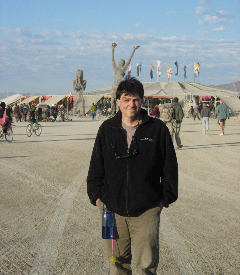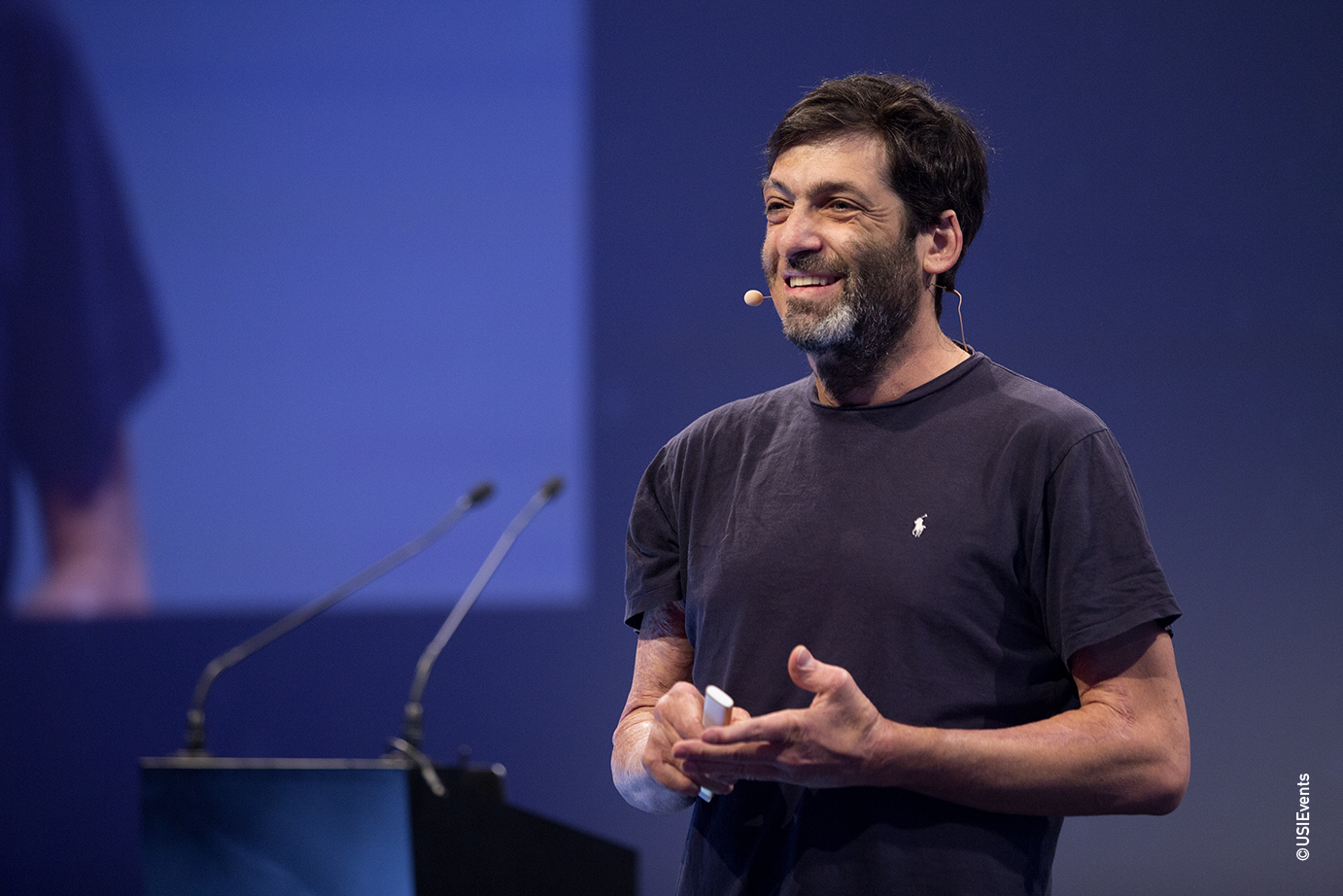In a recent report, David Leonhardt of the New York Times, described Senator Obama as a behavioral economist, saying that:
“Senator Obama’s ideas, on the other hand, draw heavily on behavioral economics, a left-leaning academic movement that has challenged traditional neoclassical economics over the last few decades. Behavioral economists consider an abiding faith in rationality to be wishful thinking. To Mr. Obama, a simpler program – one less likely to confuse people – is often a smarter program.”
I don’t know whether Senator Obama is a behavioral economist or not, but it seems to me that realizing how confusing many of the policies implemented in DC are (the tax code, the new prescription drug program, etc.) — is a matter of common sense that I hope is apparent not only to behavioral economists.
The World Economic Forum is a marvelous and interesting place. During my first day I tried to measure how many boring people I would meet. I started by randomly picking a person, try to chat with them for a few minutes and record my impressions. I went on with this for a few hours without meeting even one person that I did not enjoy spending time with (the next day I met a few politicians and at that point the game was over…).
I moderated a session about sustainability, and aside from the topic, remarks of the panel and the reflections of the audience, the highlight was to meet Jeffrey Swartz (President of the Timberland Company) — what a delightful person!
The next few days were full of meetings, receptions and parties, but the thing that I was most impressed with (over and over) was the energy and excitement of the people around me. Almost everyone was on a mission to change something in the world, to build something better and to fix some problems — and they were going about it in a creative and useful way.
I am not yet sure how much change actually comes out of Davos, but it sure gives me hope.
A few weeks ago, a paper that Mike Norton, Jeana Frost, and I wrote was selected as one of the Ideas that helped make 2007 what it was.
Aside from the fact that the NYT decided to drop Jeana and my names from the paper this was a very happy event.
The paper itself is about the idea that although people expect that the more they get to know about another person the more they will like this person, in reality familiarity breeds contempt!
Why is this the case? When we get partial information about others we tend to fill the gaps optimistically, assuming that they are just like us and that they like the same things we like. However, when we learn more about that other person we can no longer hold this optimistic interpretation, the disappointment begins, and from there on the disappointments escalate. For example, imagine that someone writes that they like music. You assume that it is the same music you like (blues) and you immediately like this blues-music-lover. But when you learn more, you discover that in fact they like jazz, and once you see one dissimilarity, everything you learn afterward is colored by that.
What is the lesson here? Sure there are some people that are worth knowing very well, but in the process of finding these individuals we will encounter a lot of heartache and disappointments.
My immersive introduction to irrationality took place many years ago while I was overcoming injuries sustained in an explosion (here is a description of my experiences in the hospital). The range of treatments in the burn department, and particularly the daily “bath” made me face a variety of irrational behaviors that were immensely painful and persistent. Upon leaving the hospital, I wanted to understand how to better deliver painful and unavoidable treatments to patients so I began conducting research in this area (see picture below). After completing this initial research project, I became engrossed with the idea that we repeatedly and predictably make the wrong decisions in many aspects of our lives and that research could help change some of these patterns. A few years later, decision making and behavioral economics dramatically influenced my personal life when I found myself using all of the knowledge I’d accumulated in order to convince Sumi to marry me (a decision that was in my best interest but not necessarily in hers). After managing to convince her, I realized that if understanding decision-making could help me achieve this goal, it could help anyone in their daily life.
Predictably Irrational, and Perfectly Irrational are my attempt to take my research findings and describe them in non academic terms so that more people will learn about this type of research, discover the excitement of behavioral economics, and possibly use some of the insights to enrich their own lives. In terms of official positions, I am the James B. Duke Professor of Behavioral Economics at Duke University and a founding member of the Center for Advanced Hindsight. (Click here for a short version of my bio, and click here for an extended version of my bio)
My free time is spent working on a guide to the kitchen and life—Dining Without Crumbs: The Art of Eating Over the Kitchen Sink—and of course, studying the irrational ways we all behave.
In an attempt to make academic research more accessible, each of these reports summarize an academic paper in plain English, and more importantly point to the implications of the findings within the context of a real world problem.
Coming Soon
![]() In conventional economics it is assumed that we are all rational — meaning that the decisions we make are the perfect decision for us. How do we achieve this feat? What standard economics assumes is that every time we face a choice we consider all the available options, compute the value of all the options, perform a cost benefit analysis, and then follow the best possible path of action. What if we make a mistake and do something irrational? Here, too, traditional economics has an answer: “market forces” will sweep down on us and swiftly set us back on the path of righteousness and rationality. (more…)
In conventional economics it is assumed that we are all rational — meaning that the decisions we make are the perfect decision for us. How do we achieve this feat? What standard economics assumes is that every time we face a choice we consider all the available options, compute the value of all the options, perform a cost benefit analysis, and then follow the best possible path of action. What if we make a mistake and do something irrational? Here, too, traditional economics has an answer: “market forces” will sweep down on us and swiftly set us back on the path of righteousness and rationality. (more…)
I was thinking this morning about what I should write, and I found it to be a bit intimidating. I am very used to writing academic papers and somehow I find academic writing very easy. Maybe it is because this type of writing has more structure, maybe because I have lots of practice writing “academics.”
But, I also suspect that there are a few things that are very different about blogs, and that these unique features make the experience so different. First, blogs are very immediate. When we write academic papers it takes a few years before they are published, while blogs are “out” the moment you press the submit button. Second, when writing blogs there is a chance that someone will read the posting (which is unlikely for academic papers). Finally, blogs provide other people an opportunity to to react, post and provide feedback and criticism.
I suspect that these three features make writing a blog feel as if the “audience” is much more real (whether this is true or not), which is both exciting but also intimidating, and somewhat stressful.
I am looking forward to getting better at this …
 |
 |
| Burningman is a fantastic experiment in creativity, community, and generosity. It is also an interesting gift exchange society where money is not allowed. | Beehavioral economics is a complex and serious profession requiring focus and attention to details (this is also why I prefer the phone to video conferences) |
 Tweet
Tweet  Like
Like 













